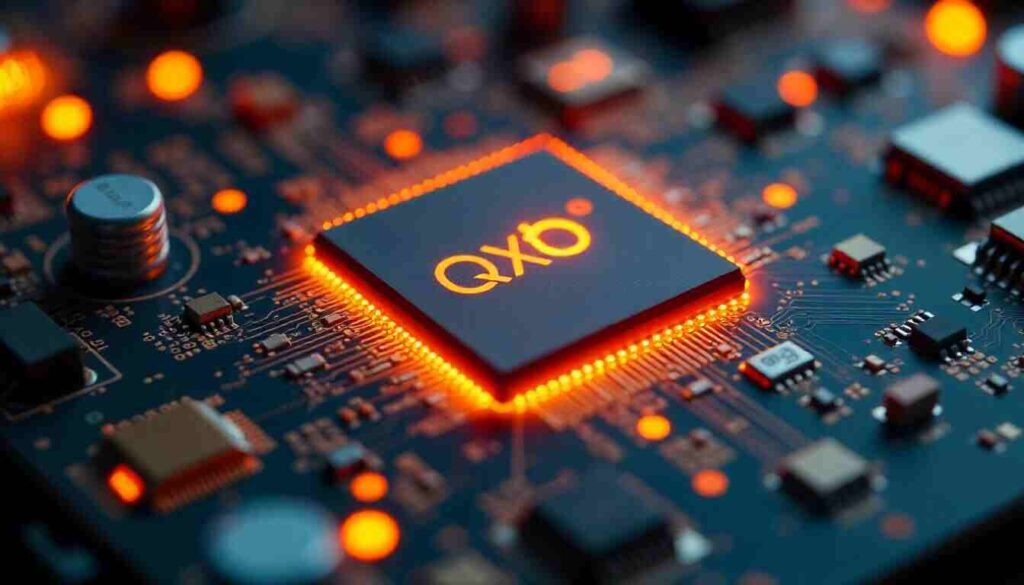Introduction
The smartphone industry is on the brink of another technological revolution, and quantum computing is set to play a crucial role in shaping the future. Quantum chips, powered by the principles of quantum mechanics, have the potential to transform smartphones by enhancing processing speeds, security, and energy efficiency. As the demand for more powerful mobile devices increases, integrating quantum technology could redefine the capabilities of next-generation smartphones.
Understanding Quantum Chips
Quantum chips operate using qubits, which differ fundamentally from traditional bits. Unlike classical bits, which exist as either 0 or 1, qubits can exist in superposition, allowing them to perform multiple calculations simultaneously. This capability enables quantum chips to process data exponentially faster than conventional processors. Additionally, qubits leverage entanglement, a phenomenon where two or more particles become correlated, enhancing computational efficiency and security.
Benefits of Quantum Chips in Smartphones
1. Unmatched Processing Power
Quantum chips could significantly boost smartphone processing power, enabling seamless multitasking, real-time data processing, and AI-driven applications. Tasks that currently require cloud computing, such as advanced image processing and real-time language translation, could be performed directly on the device.
2. Enhanced Security Through Quantum Cryptography
Cybersecurity is a growing concern in the digital world. Quantum chips can leverage quantum cryptography to create ultra-secure communication channels. Quantum key distribution (QKD) ensures that any attempt to intercept data disrupts the system, making it nearly impossible for hackers to access sensitive information.
3. Revolutionary AI and Machine Learning
With quantum chips, smartphones will be able to handle AI and machine learning tasks with unprecedented efficiency. Enhanced processing speeds will allow devices to analyze vast amounts of data instantaneously, leading to smarter virtual assistants, improved facial recognition, and more personalized user experiences.
4. Superior Battery Efficiency
One of the biggest challenges in smartphone technology is battery life. Quantum processors can optimize energy consumption by executing tasks more efficiently, reducing overall power requirements. This could lead to longer battery life and improved energy sustainability.
5. Advancements in Augmented Reality (AR) and Virtual Reality (VR)
Quantum-powered smartphones could unlock new possibilities for AR and VR applications. Higher computational speeds and better data processing would allow for more immersive experiences, making mobile gaming, virtual meetings, and digital interactions more seamless and realistic.
Challenges and Limitations
Despite their potential, quantum chips face several challenges before becoming mainstream in smartphones:
- Hardware Limitations: Quantum chips require extremely low temperatures to function optimally, which is not practical for mobile devices.
- High Production Costs: The complexity of quantum technology makes it expensive to develop and integrate into consumer products.
- Compatibility Issues: Existing software and applications may need significant modifications to run on quantum-enabled devices.
- Scalability: Researchers are still exploring how to scale quantum processors for commercial use without compromising performance.
The Future of Quantum Smartphones
Tech giants like Google, IBM, and Intel are investing heavily in quantum research, and we may see hybrid quantum-classical processors in future smartphones. These hybrid systems could bridge the gap between current digital technology and full-scale quantum computing, gradually introducing quantum advantages to mobile devices.
As quantum technology evolves, breakthroughs in miniaturization and cooling systems may allow the integration of quantum chips into smartphones within the next decade. This shift would mark a new era in mobile computing, unlocking possibilities beyond today’s imagination.
Conclusion
Quantum chips represent the future of smartphone technology, promising unprecedented speed, security, and efficiency. While challenges remain, continuous advancements in quantum research suggest that quantum-powered smartphones are not a distant dream. As companies push the boundaries of innovation, the fusion of quantum computing with mobile technology could revolutionize the way we interact with digital devices, setting the stage for the next technological revolution.


